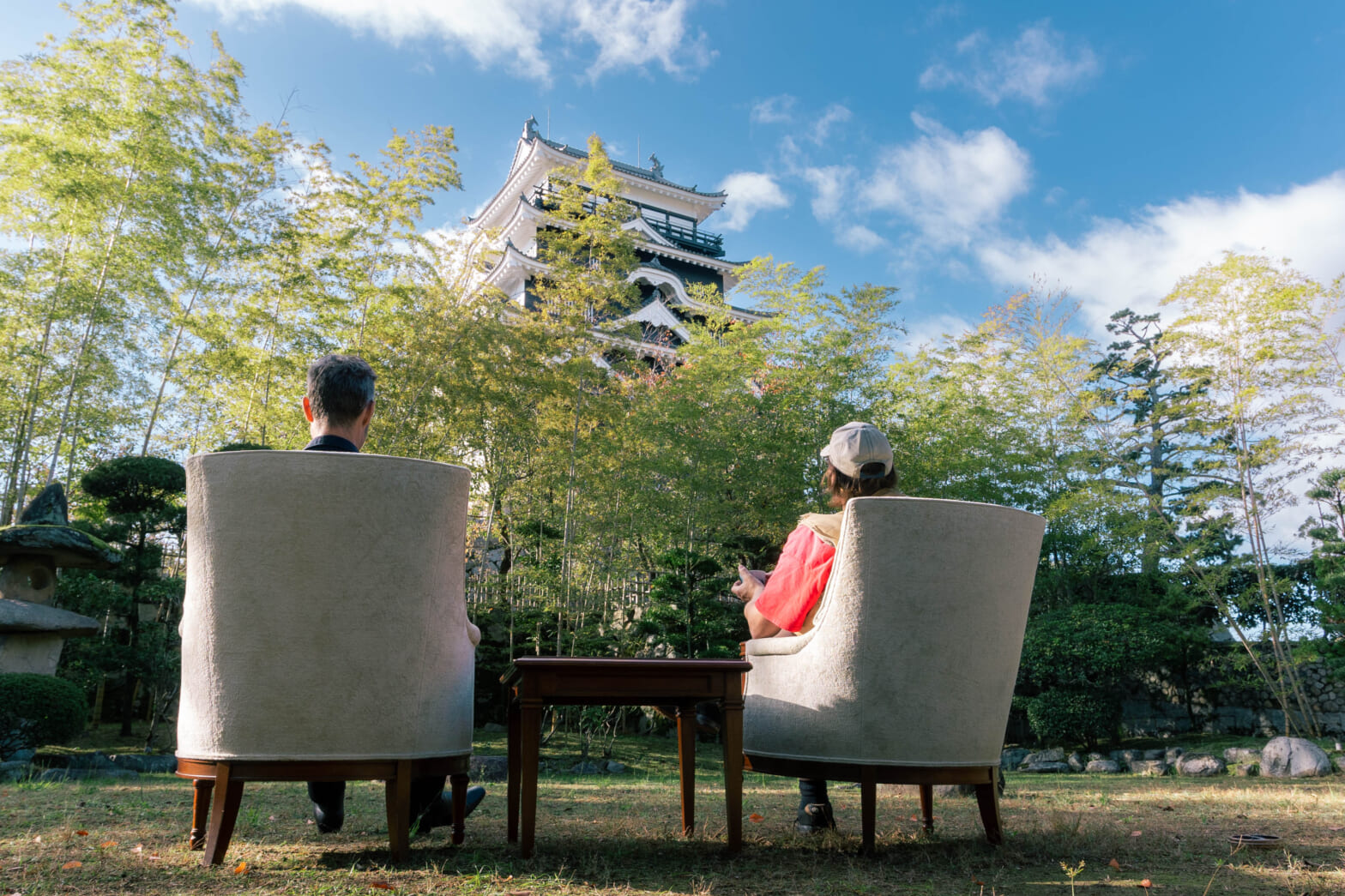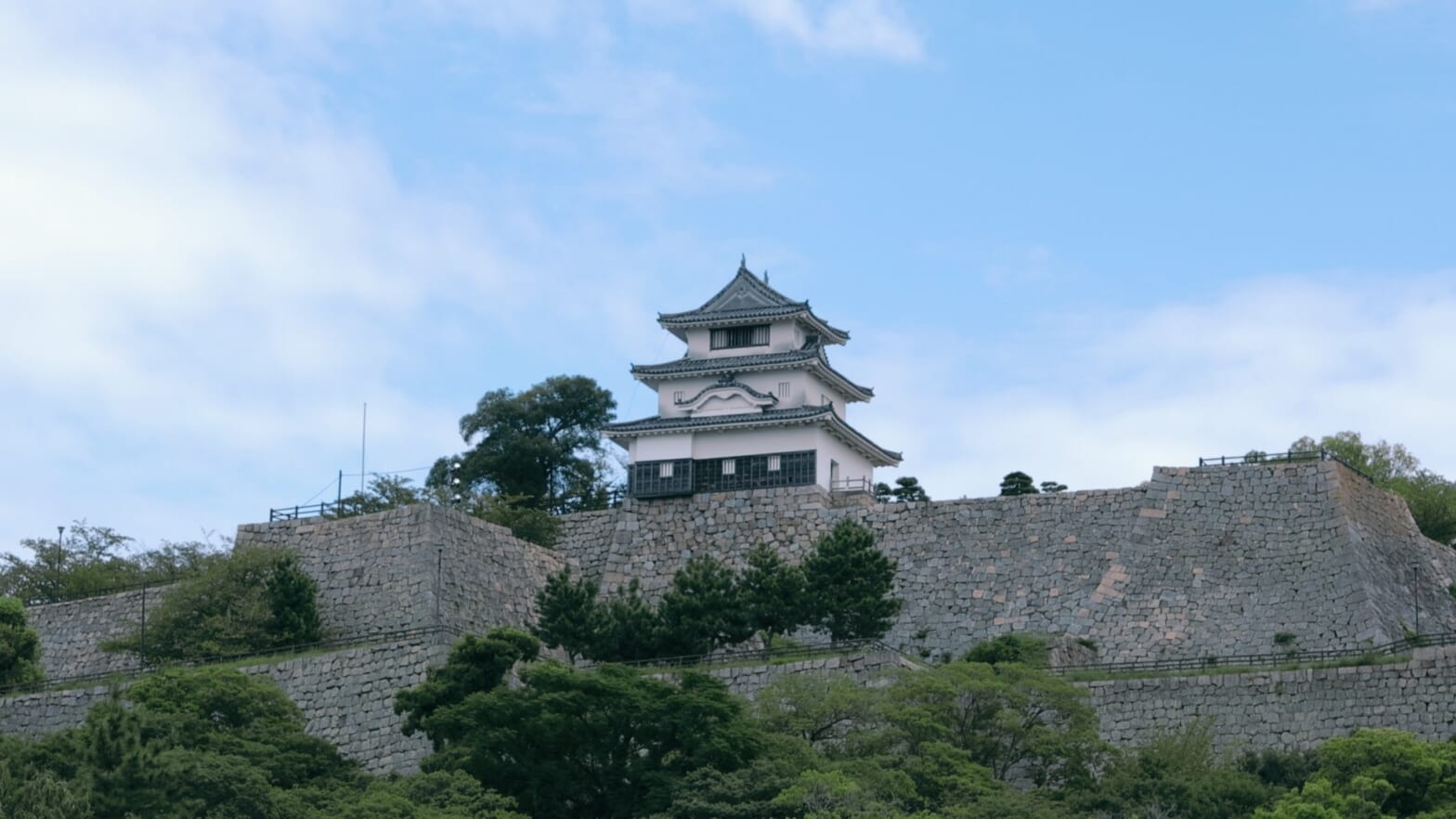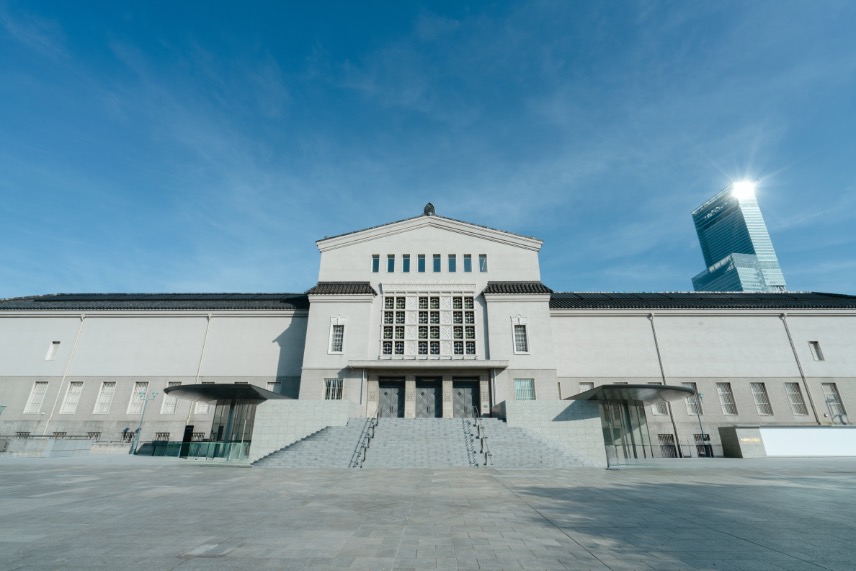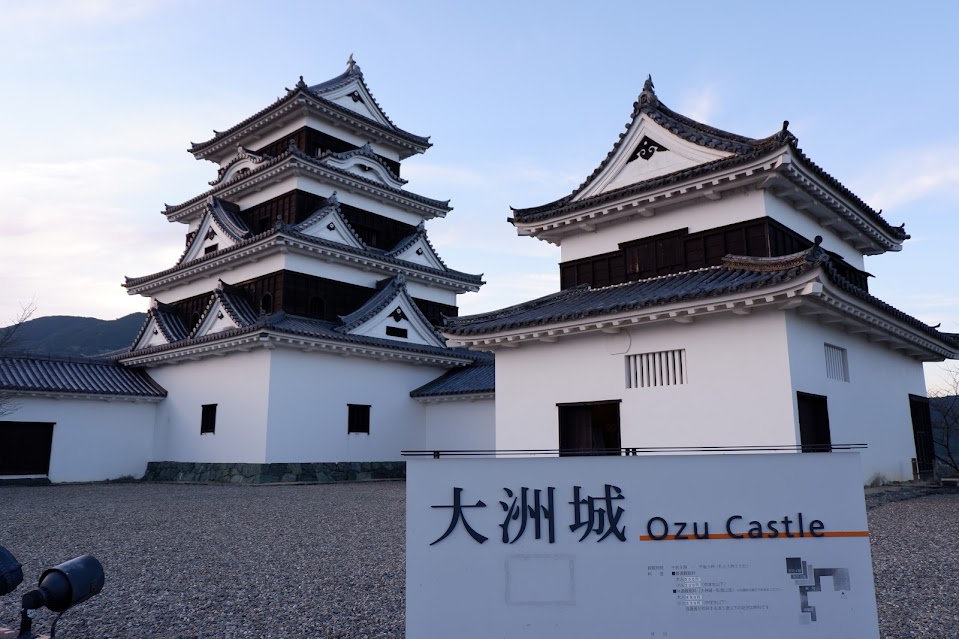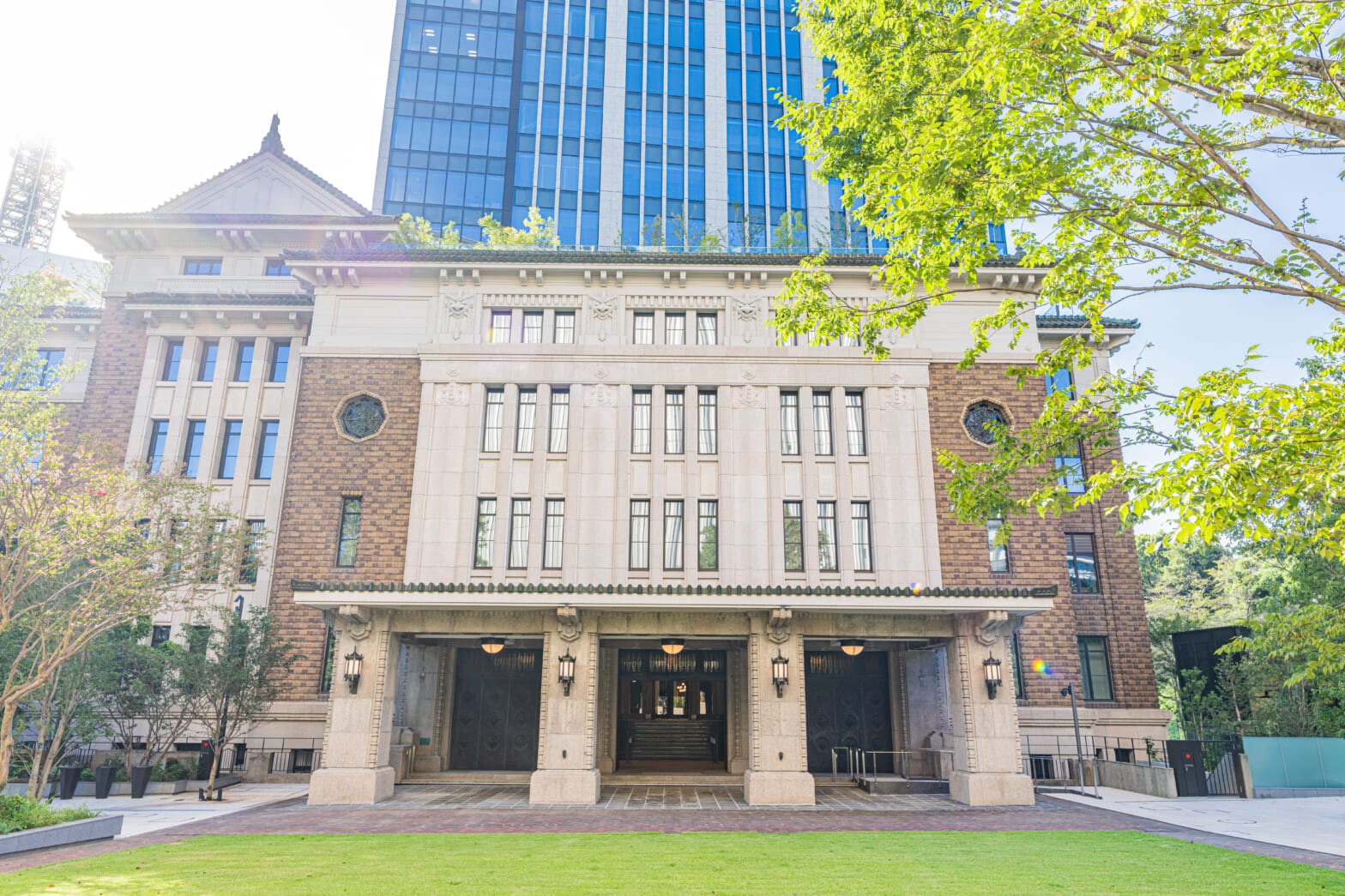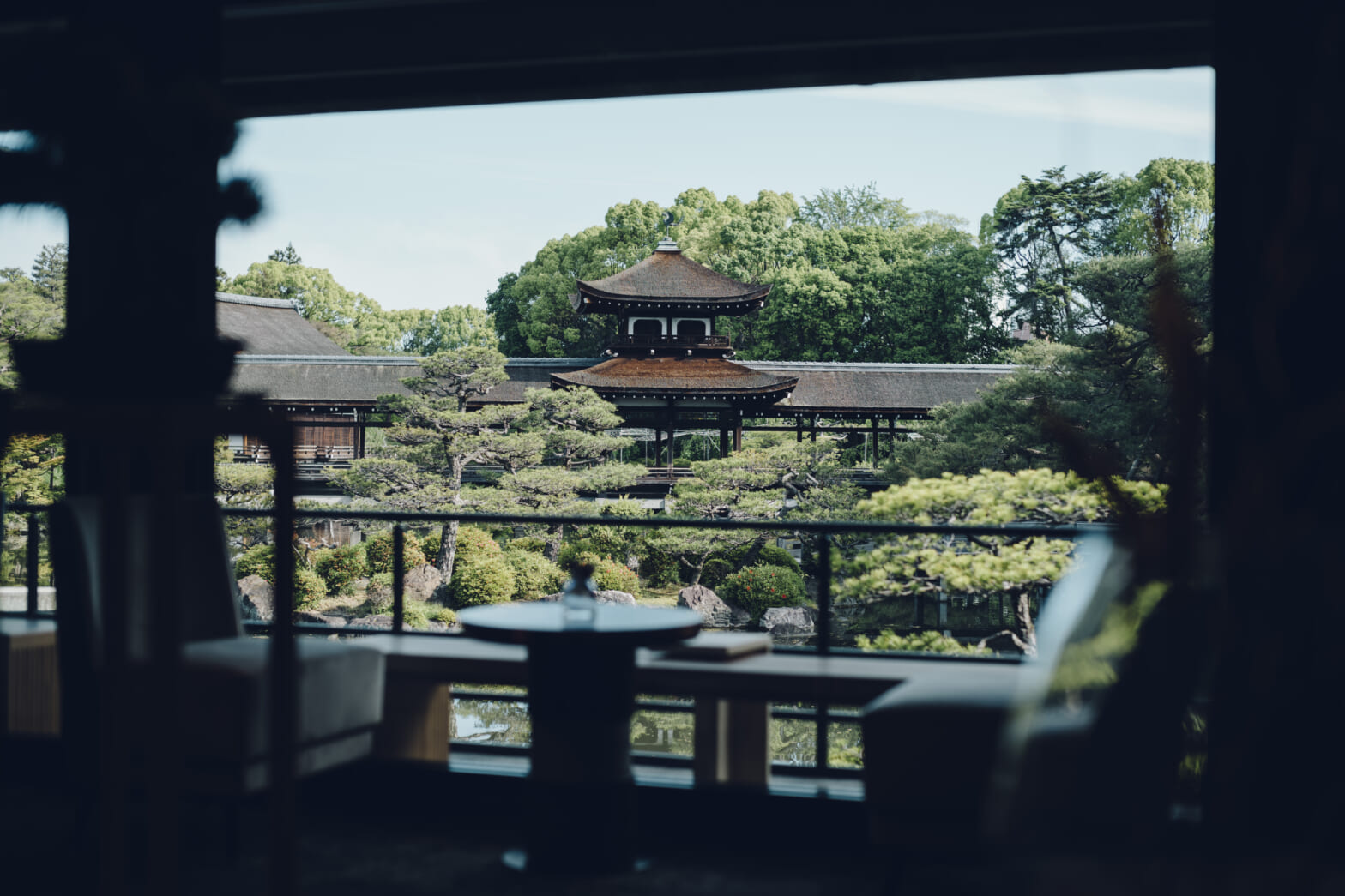Unique Venues as a New Initiative to Achieve SDGs × MICE
2025.7.3
column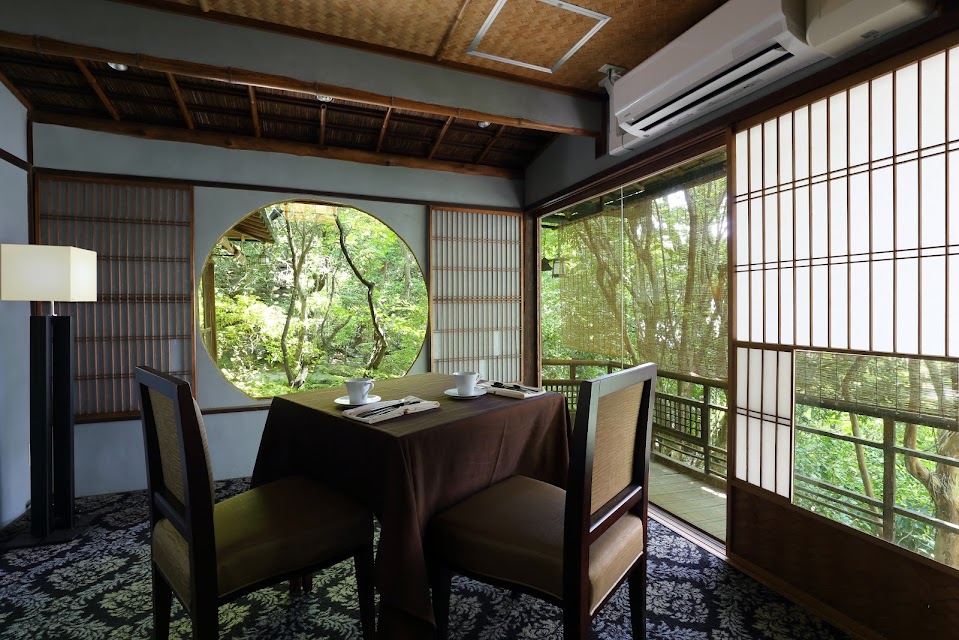
As the focus in tourism promotion shifts from the number of visitors to the amount of spending, “MICE” (an acronym for Meetings, Incentives, Conferences, and Exhibitions), known for its high per capita expenditure, has been attracting increased attention. MICE events are expected not only to generate significant economic ripple effects but also to contribute to industrial promotion, exchange of people and information, and regional revitalization in various ways.
Compared to the global market, Japan’s MICE sector is still relatively small; however, for Japan, which is aiming to boost inbound tourism, the role of MICE will become indispensable.
Nevertheless, while MICE events involve dynamic movement of people and goods and bring about substantial economic and social benefits, they also pose significant environmental challenges.
Therefore, in recent years, there has been a growing trend toward holding sustainable MICE events. This global trend is mirrored in Japan as well, where various regions have begun initiatives to promote sustainability-conscious MICE events.
In this context, we would like to introduce “Unique Venues” as a new approach that enables sustainable MICE events.
Table of Contents
- The Current State of Sustainable MICE in Japan
- Benefits for Companies Engaging in SDGs
- SDGs × Unique Venues
- UNIQUE VENUES OF JAPAN’s Initiatives Toward Sustainable MICE
The current State of Sustainable MICE in Japan

To enhance Japan’s international competitiveness in the post-COVID era, it is crucial to increase the value of hosting MICE events in Japan. To differentiate itself from global competitors, Japan is expected to promote sustainable MICE practices. One of Japan’s unique strengths is its high reputation as a travel destination. According to the Travel and Tourism Competitiveness Report published by the World Economic Forum (WEF), Japan ranked first in the world in 2021 based on sustainability criteria.
Additionally, Japan boasts top-level capabilities globally in areas such as its low environmental impact and efficient railway network, universities’ contributions to sustainability, and its safe and secure society.
Furthermore, here are some examples of sustainability initiatives currently underway in Japan’s MICE sector.
1. Promotion of Alternative Energy
Japan is promoting the introduction of renewable energy sources such as solar, wind, hydro, hydrogen, and biomass in its effort to achieve carbon neutrality by 2050. Many MICE venues are also implementing energy-saving measures and adopting renewable energy sources.
2. Preservation of Culture
Kyoto, with its more than 1,200-year history, offers a firsthand experience of traditional culture. In addition, Japan preserves diverse regional cultures such as the Ainu culture in Hokkaido and the Ryukyu culture in Okinawa. The fact that many Japanese companies have been in business for over 100 years also reflects how Japan values tradition while embracing change and innovation.
3. Realization of a Diverse and Inclusive Society
Various initiatives are being undertaken throughout Japan to create a more diverse and inclusive society. For example, Osaka is actively providing information for LGBTQ travelers, while Hiroshima is promoting vegan and vegetarian options for traditional local cuisine, meeting a wide range of dietary and cultural needs.
4. Guidelines and Evaluation Systems
Sustainability guidelines for MICE events have been established in regions such as Tokyo and Okinawa, offering practical examples to encourage specific actions. In Osaka, an “SDGs for MICE Evaluation System” has been introduced, reflecting the growing awareness and commitment to the SDGs.
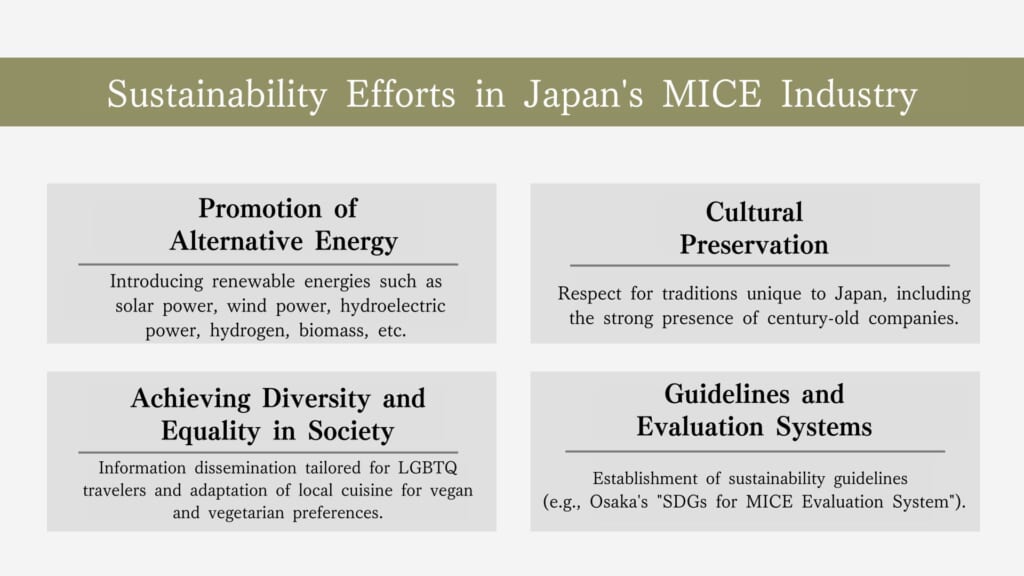
【Reference Website】
Benefits for Companies Engaging in SDGs

So far, we have discussed sustainable MICE initiatives as efforts to reduce environmental burdens. But did you know that companies themselves can also gain significant benefits by incorporating sustainability into their events?
The greatest benefit is the creation of corporate value through improved relationships with stakeholders. Engaging in SDGs makes it easier to gain social trust. Furthermore, developing products related to achieving SDG goals can lead to the creation of new businesses and new opportunities, allowing companies to capture fresh business prospects.
Such efforts also contribute to positive branding that leaves a favorable impression on customers. By actively working toward a sustainable society, companies are securing their own long-term sustainability. Thus, the SDGs represent an important perspective for any organization.
SDGs × Unique Venues
~What are “Unique Venues” that Enable Sustainable MICE Events?~
-What is a Unique Venue
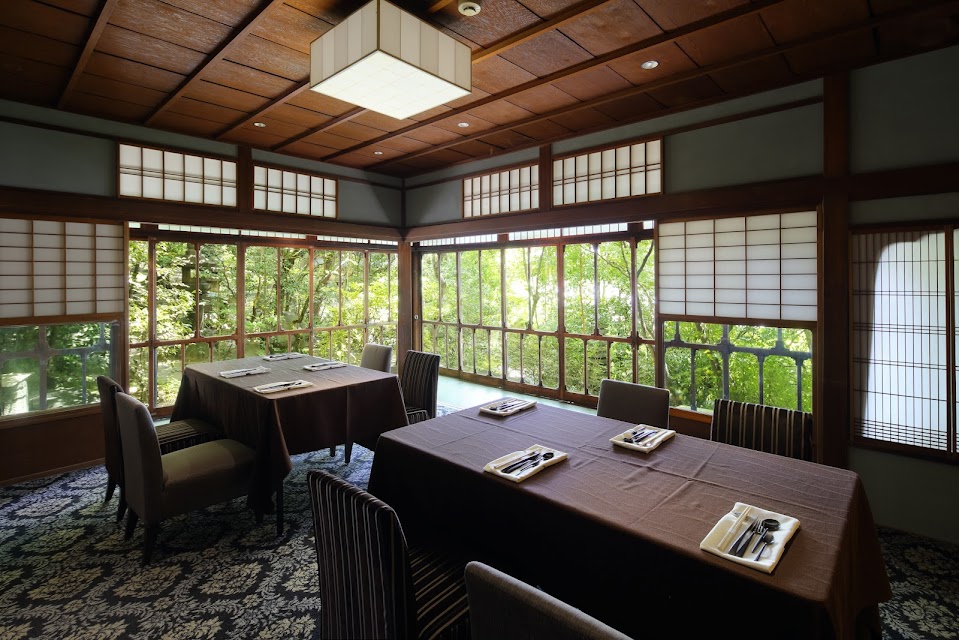
As the name suggests, “Unique Venues” refer to “special venues” that offer “special experiences” by hosting events in extraordinary locations. By holding conferences, receptions, and events in historical buildings, shrines, temples, castle ruins, art museums, museums, and other remarkable sites, organizers can create a sense of exclusivity and showcase the unique characteristics of each region. Utilizing distinctive local architecture while allowing guests to experience the essence of Japan makes unique venues a perfect match for MICE events.
-SDGs × Unique Venues
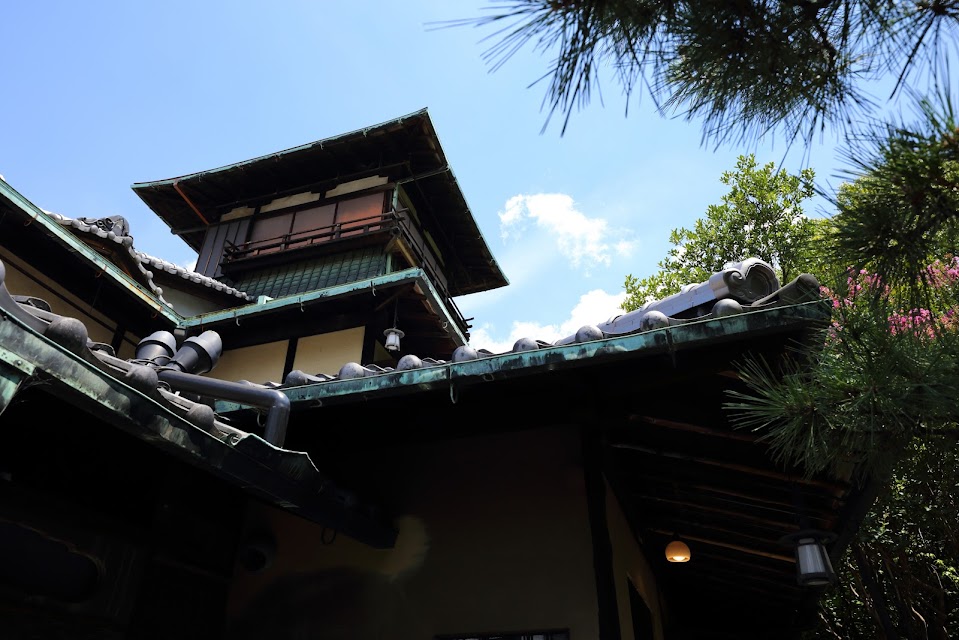
Let’s take a look at how hosting MICE events at unique venues contributes to sustainability.
1. Preserving and Passing on Regional Culture
By utilizing unique venues, which help preserve valuable traditional culture and cultural heritage of each region, these events serve as an ideal way to carry on Japan’s rich traditions for future generations.
2. Promoting Regional Economies
When visitors return to the region as repeat tourists after attending an event at a unique venue, it contributes to an increase in tourism, boosts the area’s recognition, and generates economic ripple effects throughout the region. This includes promoting employment, enhancing services, and ultimately strengthening regional branding—not just preserving buildings, but uplifting the entire community.
3. Protecting Regional Environments
Unique venues utilize historical structures in their original form. By making use of the region’s natural and cultural assets as they are, this approach represents an optimal way to preserve historical and environmental resources while allowing for sustainable use.
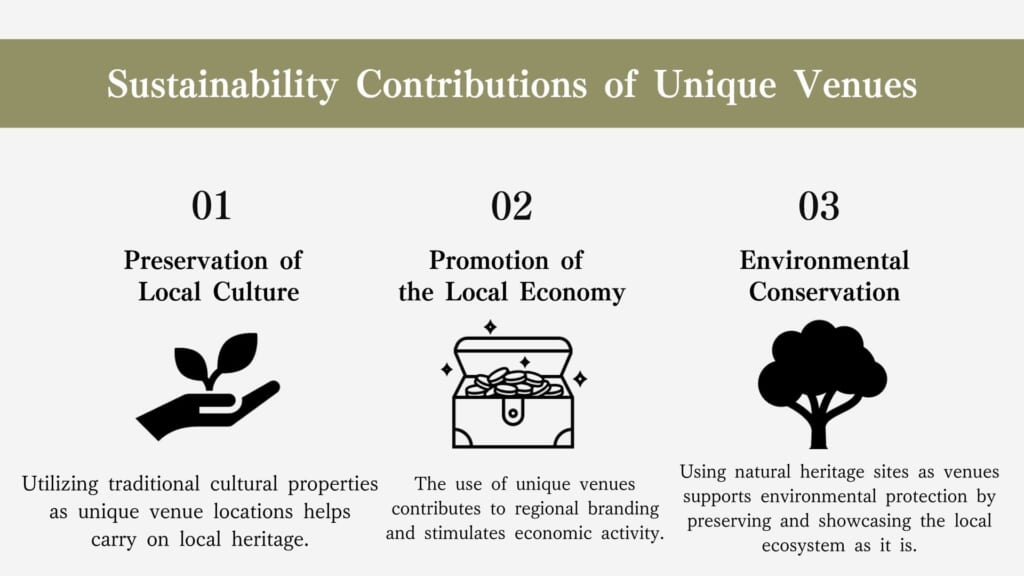
Unique venues, which preserve and reutilize buildings and landscapes of historical and cultural significance, reflect the SDGs philosophy of inclusiveness by connecting and continuing traditions.
Sustainable MICE Initiatives Provided by UNIQUE VENUES OF JAPAN
At UNIQUE VENUES OF JAPAN, we offer initiatives that enable sustainable MICE events from multiple perspectives—including economy, culture, and cuisine.
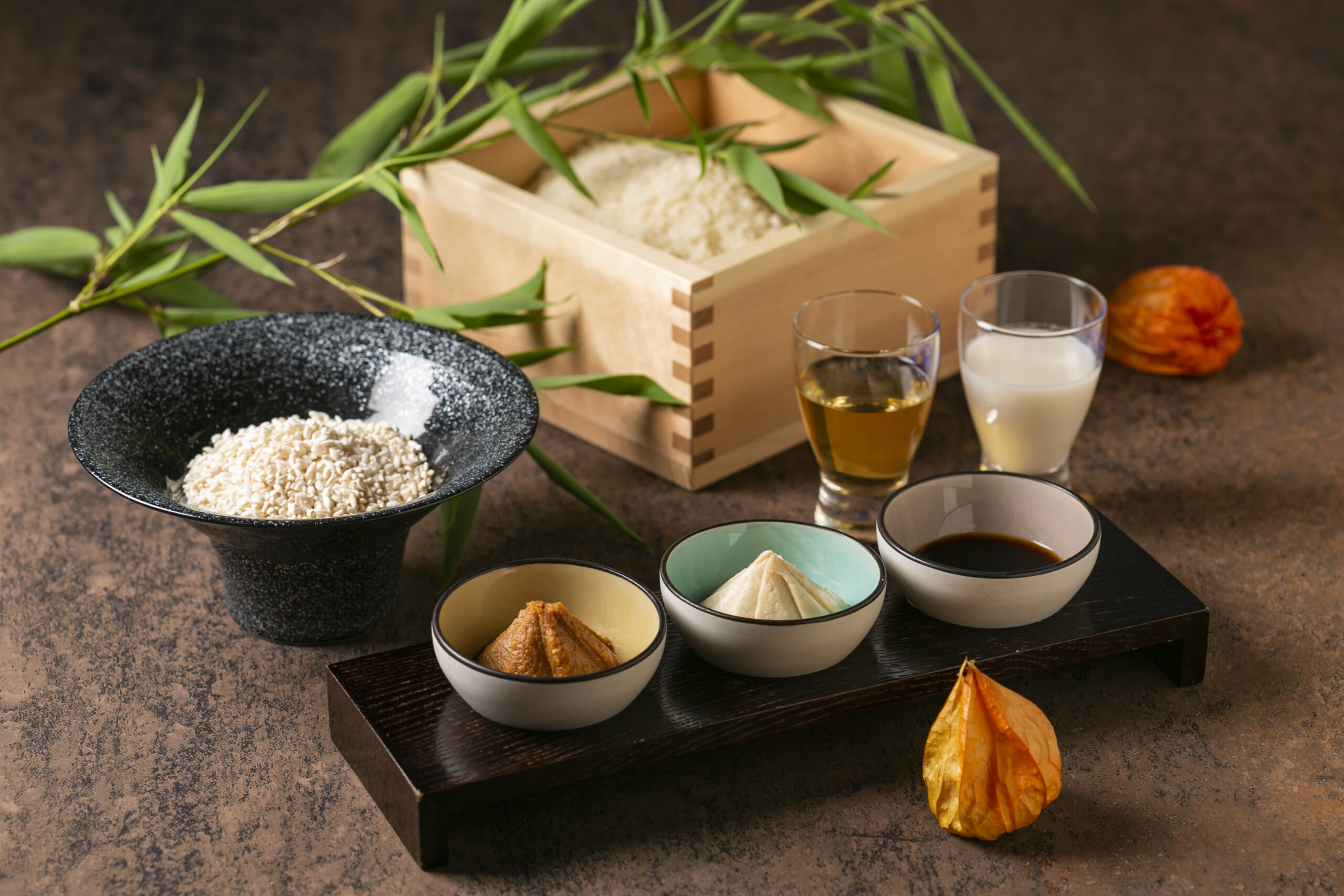
① Sustainability of History and Culture
ーPreserving Historical Buildings through the Use of Unique Venuesー
The venues utilized are historical structures of significant cultural value, such as cultural properties, shrines, temples, and facilities that showcase regional culture, which should be preserved for future generations. By utilizing these buildings—previously only accessible for viewing—for special parties and MICE events, the revenue generated can be reinvested into the maintenance and preservation of these buildings and their cultural heritage, contributing to the sustainability of history and culture.
② Sustainability of Regional Economies
— Supporting Local Communities through Local Production and Consumption —
Parties and MICE events feature cuisine that emphasizes local production for local consumption. By using locally sourced ingredients to create dishes unique to the area, we provide guests with a distinctive culinary experience while supporting the local economy. Attractions that enhance the events may also involve local performers such as geisha, musicians, and entertainers, enabling the creation of regionally connected content. Since MICE events and parties gather large numbers of participants, they have significant ripple effects on other industries such as accommodations and local activities, and we strive to maximize these benefits within the region.
③Environmental Sustainability
ーPreserving Resources Through Responsible Event Planningー
For MICE events and parties, we implement measures to reduce environmental impact, such as minimizing food waste, reducing the use of plastic products, and adopting paperless operations.
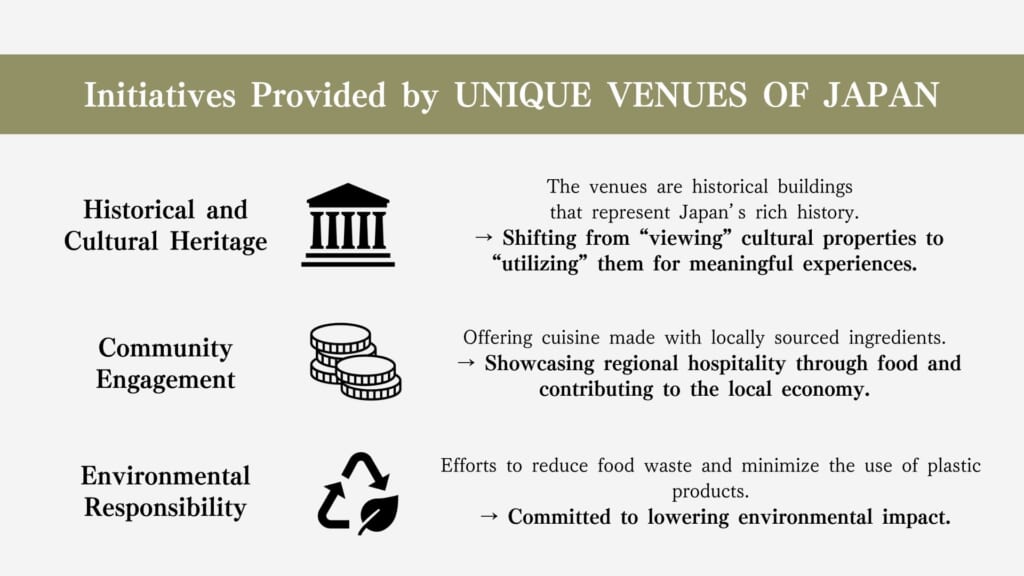
We have introduced Unique Venues as a new approach to achieving sustainable MICE events. If you are interested in learning more about UNIQUE VENUES OF JAPAN, please feel free to contact us at UNIQUE VENUES OF JAPAN.
Contact us here.
PLACE
Find a venue
Spend time with your loved ones,
at a one-of-a-kind location
where you can experience Japanese culture.


